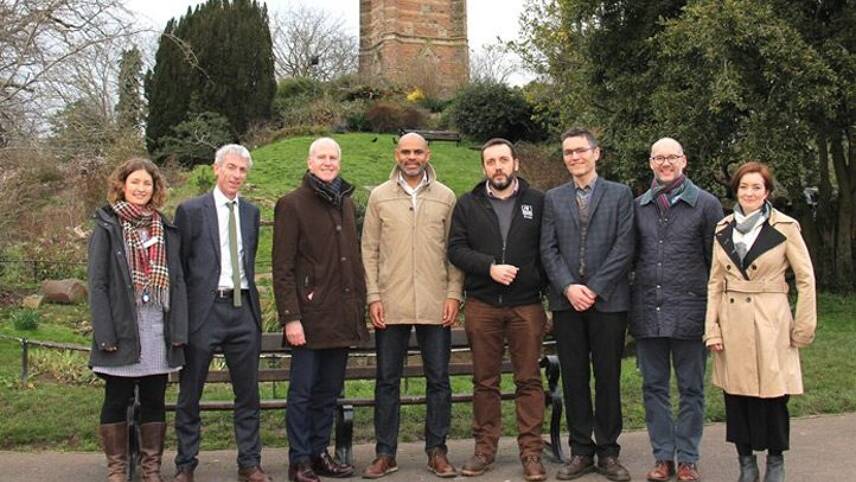Register for free and continue reading
Join our growing army of changemakers and get unlimited access to our premium content

Pictured: Signatories to the emergency declaration.
The ecological emergency declaration, made on Tuesday (4 February), has been signed by Mayor Marvin Rees, Avon and Wildlife Trust chief executive Ian Barrett and members of the local authority’s cabinet.
It builds on the council’s 2018 ‘climate emergency’ declaration with a commitment to accelerate progress on the nature aspects of Bristol’s One City Plan. The plan includes a headline target to double wildlife in the city-region by 2030.
Signatories of the declaration have highlighted the need for collaboration, both across the council and externally, to meet this aim. Bristol City Council says it will work with businesses, NGOs, charities and communities, while lobbying central Government for more funding and stronger policy incentives on nature conservation and restoration. In a statement laying out its priorities, the local authority listed conserving wildlife-rich spaces, preventing habitat destruction and changing land-use approaches.
Mayor Marvin Rees said the declaration would also see the council improve ecological considerations when deciding on planning applications or taking “major” city decisions.
“This declaration will provide a focus for the whole city to come together and take positive action,” Rees said.
“Our commitment to this will extend beyond parks and green spaces. We need our buildings, streets and open spaces to support wildlife and create a more nature-friendly city, and we need new developments to do the same.”
Re-energised
Tuesday also saw Bristol City Council confirm plans to install a battery storage unit at City Hall, as part of its bid to reach net-zero operational emissions by 2025 and net-zero city-wide emissions by 2030.
The battery unit will be installed in the basement of the building by local energy supplier Bristol Energy later this year. It will be fitted with ‘smart’ technology which automatically charges the battery when energy prices are low and the grid mix is low-carbon, and discharges at peak times, when energy prices are higher and the grid mix is higher-carbon.
Bristol Energy, which supplies all of the council’s energy, estimates the battery will reduce its annual electricity bills by £16,000. It has also confirmed that the battery could be connected to on-site renewable generation arrays if the council decides to install them at City Hall in the future.
Other UK local authorities to have invested in battery storage arrays in recent months include Swindon Borough Council, Gateshead Council and Warrington Council, the latter of which is combining its array with two industrial-scale solar farms in a drive to become energy self-sufficient.
Mission Possible: Achieving a net-zero future for the public sector
edie’s fifth guide in our series of net-zero reports across various industries looks at how the public sector is driving towards net-zero across operations and local communities.
The report was developed following in-depth research with a number of sustainability, energy and carbon managers working for the public sector, along with experts from industry associations. Download it for free here.
Sarah George


Please login or Register to leave a comment.